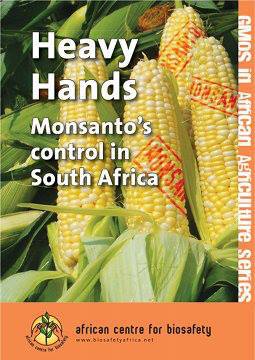Talking Points on Food and Agriculture
-
International agencies agree that small farmers are key to
addressing poverty and food insecurity in Africa. But commercial
monopolization of seeds and land grabs by both foreign
and domestic investors make a mockery of international pledges to
help small farmers. This replicates the takeover of land and
agriculture by agribusiness in the United States and other
rich countries.
-
Studies have found that attention to
small farmers can be the most effective strategy for increasing food production
and providing income to the rural population. But there are few effective
controls on the rush of investment into land by speculators and commercial
enterprises. Farmers who lose their land wait in vain for promised
replacement jobs. In South Africa and Namibia, the issue of land distribution
remains unresolved.
- At the same time, multinational companies such as Monsanto, which monopolize the supply of commercial seeds and fertilizer, erode the independence of small farmers by pressuring governments to outlaw traditional practices of seed saving and sharing. The companies' monopolistic strategies are supported by public and private international donors, such as USAID and the Gates Foundation.

U.S.-based Monsanto is one of the largest global agribusiness companies. Its business relies on expanding commercial control over rights to seeds.